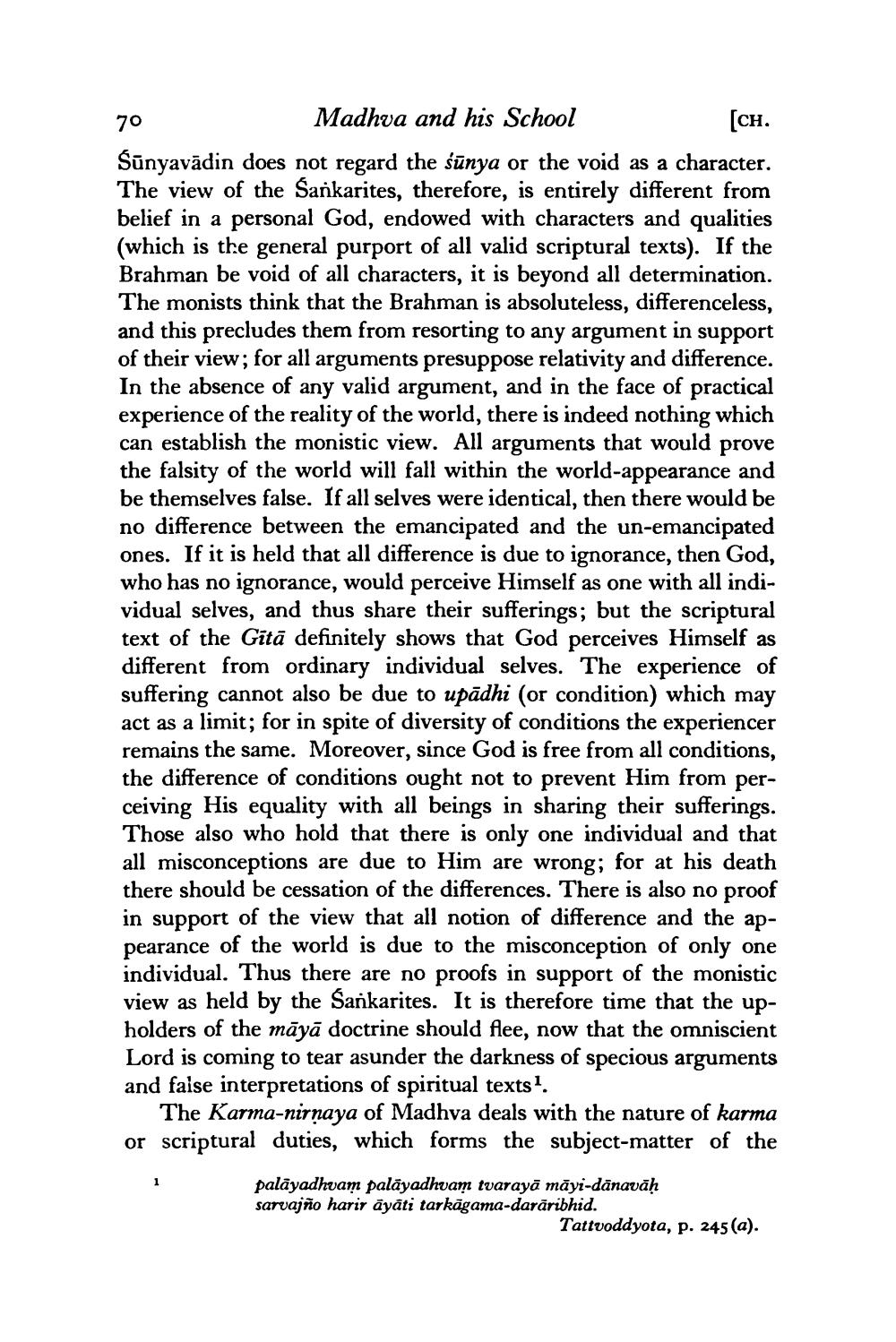________________
Madhva and his School
[CH.
Šūnyavādin does not regard the sunya or the void as a character. The view of the Sankarites, therefore, is entirely different from belief in a personal God, endowed with characters and qualities (which is the general purport of all valid scriptural texts). If the Brahman be void of all characters, it is beyond all determination. The monists think that the Brahman is absoluteless, differenceless, and this precludes them from resorting to any argument in support of their view; for all arguments presuppose relativity and difference. In the absence of any valid argument, and in the face of practical experience of the reality of the world, there is indeed nothing which can establish the monistic view. All arguments that would prove the falsity of the world will fall within the world-appearance and be themselves false. If all selves were identical, then there would be no difference between the emancipated and the un-emancipated ones. If it is held that all difference is due to ignorance, then God, who has no ignorance, would perceive Himself as one with all individual selves, and thus share their sufferings; but the scriptural text of the Gita definitely shows that God perceives Himself as different from ordinary individual selves. The experience of suffering cannot also be due to upādhi (or condition) which may act as a limit; for in spite of diversity of conditions the experiencer remains the same. Moreover, since God is free from all conditions, the difference of conditions ought not to prevent Him from perceiving His equality with all beings in sharing their sufferings. Those also who hold that there is only one individual and that all misconceptions are due to Him are wrong; for at his death there should be cessation of the differences. There is also no proof in support of the view that all notion of difference and the appearance of the world is due to the misconception of only one individual. Thus there are no proofs in support of the monistic view as held by the Sankarites. It is therefore time that the upholders of the māyā doctrine should flee, now that the omniscient Lord is coming to tear asunder the darkness of specious arguments and false interpretations of spiritual texts1.
The Karma-nirnaya of Madhva deals with the nature of karma or scriptural duties, which forms the subject-matter of the
70
1
palayadhvam palayadhvam tvarayā māyi-dānavāḥ sarvajño harir āyāti tarkāgama-darāribhid.
Tattvoddyota, p. 245 (a).




